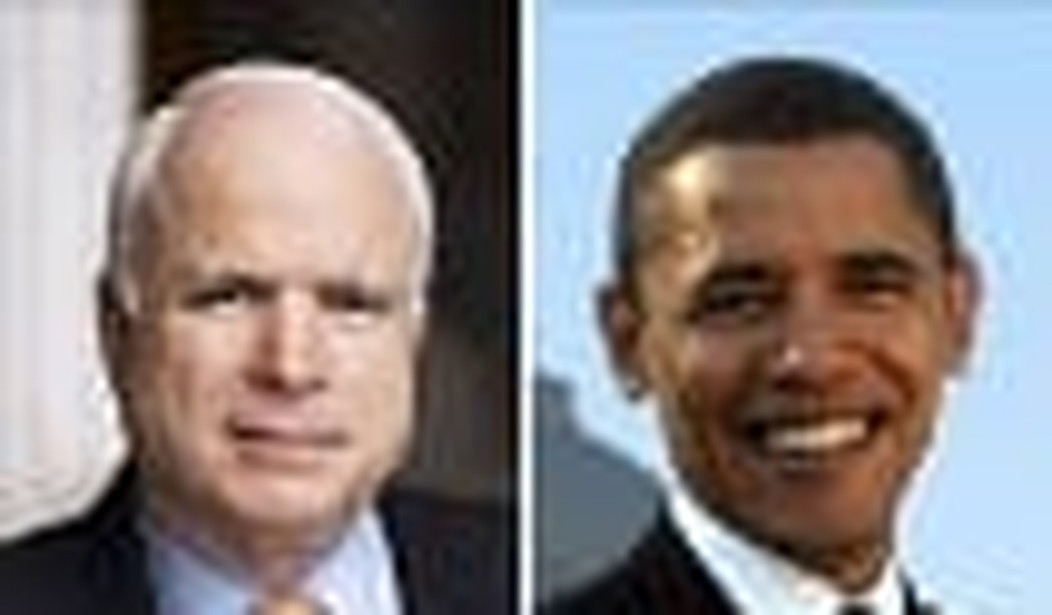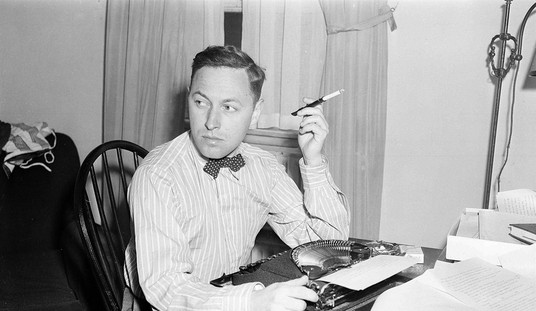To get the grubby business of politics out of the way first, it should be noted that Hillary Clinton gained a comfortable victory in the South Dakota primary while Barack Obama breezed to a double digit win in Montana.
But the results from ultimately meaningless primaries pale in comparison to the historical tsunami that hit this country right around 7:30 central time when both CNN and AP made the call that Barack Obama would be the first African American to win the nomination for president of a major political party in the United States.
We knew it was coming, of course. We’ve known for months that Hillary Clinton had very little chance of closing the gap opened up by Obama in the wake of his 10-state primary winning streak. But Clinton demonstrated true grit and a steadfastness that won the admiration even of some of her harshest critics by coming back time after time to force Obama to continue the campaign.
In the end, the Democratic nominee stumbled to the finish line, losing 7 of the last 10 primaries. He was not able to deliver a knock-out blow to his tenacious rival – his nomination gained by convincing superdelegates that his victory was inevitable and the fact that the clock simply ran out on Clinton.
But regardless of how he achieved it, Obama’s victory is one of those “hinge” moments in American history where a door is opened and the country walks through it, leaving the past behind forever. Putting politics aside for one moment, the victory of this talented, passionate, brilliant man whose life story is perhaps even more incredible than his singular achievement in winning the nomination should be a source of enormous pride for all Americans. We should revel in it for a few moments, if only because there has been so little to truly unite us in recent years.
But once the sheen is off the novelty of the event, it’s back to business – the business of trying to figure a way to win enough states to get to 270 electoral votes. Nothing else matters from here on out and both candidates – John McCain and Obama – will mix and match the states on the electoral map, weighing every decision against how far it advances their plan for victory.
Last night saw the unveiling of the outline of those plans when both candidates gave speeches that, for all intents and purposes, kicked off the general election campaign. And for Hillary Clinton, last night was a strange and sad interlude. A campaign not suspended. A race not conceded. But a clear realization by the candidate that her consuming desire to be president would not be achieved.
Earlier in the day, she allowed her staff to mention that she would accept the Vice Presidential nomination if it was offered. But there is much more to that acknowledgment than meets the eye. One school of thought holds that she would not have put her name forward so aggressively if she thought it would be refused. Another side of the coin is that she allowed her name to be mentioned because she knew Obama would never choose her.
She doesn’t want to appear the supplicant begging for scraps from Obama’s table. But at the same time, she doesn’t want to be seen as thrusting herself forward either. It is a difficult position for her to be in, and over the next few days the two candidates and their staffs will probably feel each other out carefully, with Obama making the decision whether the “dream ticket” will become a reality.
And part of that decision will certainly be questions surrounding the one man in America who could upstage the presidential candidate. Bill Clinton has angered Obama supporters with his blatant use of the race card as well as his pointed criticisms of the candidate on everything from health insurance to the Iraq war. His outsized personality makes bringing Hillary on board a gamble of immense proportions. In the end, Obama will have to decide if he can win without Hillary Clinton on the ticket. The only reason she would be there is if he felt he had no other choice.
This will all be settled in the near future. Last night was the kickoff of the fall campaign. The fact that it happened three weeks before the official start of summer tells us something about the excruciating length that the process has now achieved. But both McCain’s and Obama’s speeches – after obligatory nods to the good hearts and patriotism of their opponent – showed how rough the coming battle will be.
McCain’s speech – poorly delivered before a lackluster audience – nevertheless laid into Obama, highlighting his inexperience, his naiveté, and his lack of a tangible record:
“Both Sen. Obama and I promise we will end Washington’s stagnant, unproductive partisanship. But one of us has a record of working to do that and one of us doesn’t,” McCain said. “Americans have seen me put aside partisan and personal interests to move this country forward. They haven’t seen Sen. Obama do the same. For all his fine words and all his promise, he has never taken the hard but right course of risking his own interests for yours; of standing against the partisan rancor on his side to stand up for our country. He is an impressive man, who makes a great first impression. But he hasn’t been willing to make the tough calls; to challenge his party; to risk criticism from his supporters to bring real change to Washington. I have.”
That crack about “first impressions” is telling. McCain will seek to define Obama as a man of pretty words but a frightening far left agenda. He will be helped in this by his surrogates constantly alluding to the radicals that dot Obama’s past. Jeremiah Wright, Father Pfleger, William Ayers and others will become very familiar to Americans before election day. Whether these problematic associations will drag Obama down to defeat will depend on how well the candidate can close the obvious gap between what his radical friends say about America and his own soothing “post partisan” rhetoric.
And it will also depend on how well Obama can make his case against McCain. That brief will be simple and brutal; electing McCain will be like electing Bush to a third term.
Because while John McCain can legitimately tout moments of independence from his party in the past, such independence has not been the hallmark of his presidential campaign.
It’s not change when John McCain decided to stand with George Bush 95 percent of the time, as he did in the Senate last year.
It’s not change when he offers four more years of Bush economic policies that have failed to create well-paying jobs, or insure our workers, or help Americans afford the skyrocketing cost of college—policies that have lowered the real incomes of the average American family, widened the gap between Wall Street and Main Street, and left our children with a mountain of debt.
And it’s not change when he promises to continue a policy in Iraq that asks everything of our brave men and women in uniform and nothing of Iraqi politicians—a policy where all we look for are reasons to stay in Iraq, while we spend billions of dollars a month on a war that isn’t making the American people any safer.
So I’ll say this—there are many words to describe John McCain’s attempt to pass off his embrace of George Bush’s policies as bipartisan and new. But change is not one of them.
These are criticisms that will resonate with an awful lot of voters. And it highlights McCain’s major headache in this campaign; he can’t run very far from President George Bush and expect to hold on to his base. A president with a 30% approval rating will be a huge drag on the candidate as the Democrats will take every opportunity to try and make Bush and McCain interchangeable parts to the same machine. And with an astonishing 82% of Americans thinking that machine is on the wrong track, McCain will be forced to walk a tightrope between acknowledging and criticizing Bush mistakes while not throwing the president under the bus entirely.
Two candidates who feature compelling personal histories. One candidate youthful, suave, urbane, and whose rhetoric sets off sparks of brilliance on the stump. Another candidate older, wiser, more experienced and in many ways as comfortable as an old shoe. One candidate a virtual unknown. The other has been in the forefront of every major foreign policy and defense issue for the last generation. And always in the background, the knowledge that one candidate is white and the other is black. What role race will play in this campaign will not be obvious until after the fact.
But given American history, it is almost certain to be a significant part of what is to come.










Join the conversation as a VIP Member